Diggers plead with fellow Aussies to remember Afghans as final inquiry report released
Military veterans and advocates are calling on Australians to not let the Russian invasion of Ukraine overshadow the Federal Government’s commitment to other critical allies.
QLD News
Don't miss out on the headlines from QLD News. Followed categories will be added to My News.
Military veterans and other advocates are calling on the Australian public and government to not let the Russian invasion of Ukraine overshadow the nation’s commitment to Afghanistan.
The plea – from individual citizens, church groups, refugee agencies and Afghanistan war veterans including Jason Scanes and Glenn Kolomeitz – comes on the heels of the final report of the Senate Foreign Affairs, Defence and Trade References Committee Australia’s engagement in Afghanistan, released Tuesday.
At least 1000 Afghans, including family members, who are eligible for visas because they worked for the Australian Government throughout the 20 year US-led war, remain in hiding from the Taliban after being left behind in the chaotic withdrawal of coalition forces from the war-torn nation in August.
Many of them were approved for temporary humanitarian stay subclass 499, or emergency, visas at the time, meaning they could be evacuated by the Australian government, but were still left behind.
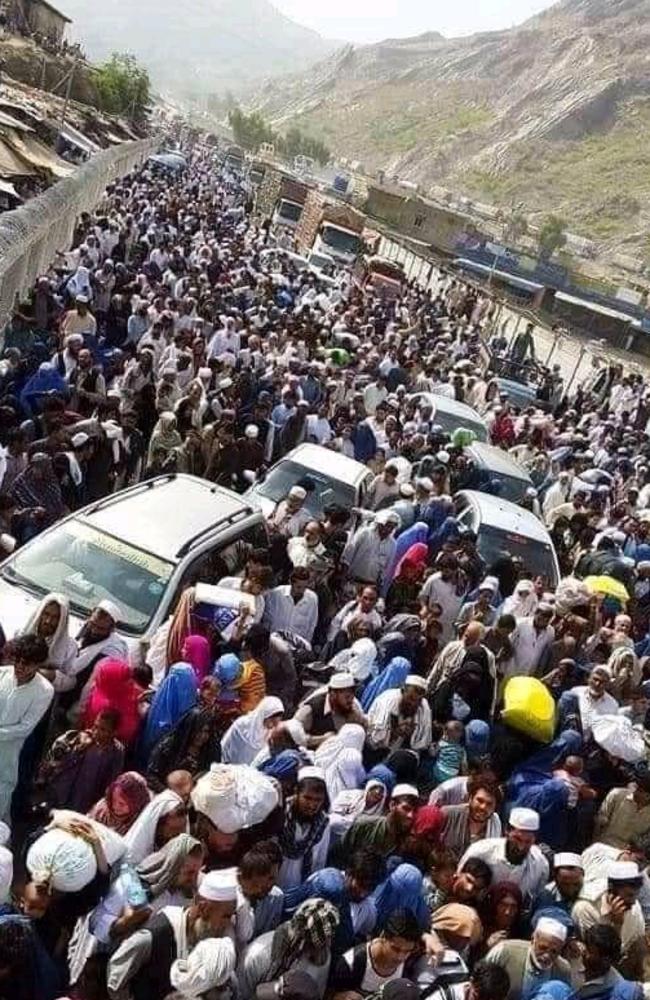
Some were evacuated without their spouse or other family members and remain separated.
Members of the Taliban, an Islamic fundamentalist group labelled as a terrorist group by the United Nations, who declared themselves the new government, have been known to torture or kill those identified as having served with coalition forces, leaving thousands living in fear, including Australian Defence Force (ADF) interpreters and their families.
The Taliban ruled Afghanistan for five years before the US-led military forces ousted them in 2001 following the September 11 terrorist attacks on America.
In almost 1400 cases, those emergency visas then expired although the recipients remained in Afghanistan or another country while waiting for help from Australia, which was one of several issues brought up at the Senate committee inquiry.
Among other issues, the findings outline the problems eligible Afghans have in submitting their documents to Australian authorities since the Taliban takeover, as well as the length of time it takes for the government to advise applicants of their visa status or place in the queue.
In the final report, the committee made six main recommendations including the need for the Department of Home Affairs (DHA) to “urgently improve” its visa and communication processes with at-risk Afghans left behind, including providing time frames for how long it should take to process their applications.
“Strict vetting of applicants is essential but should not unduly delay the granting of visas, particularly to Afghans who assisted the Australian military, diplomatic and humanitarian effort,’’ the report stated.
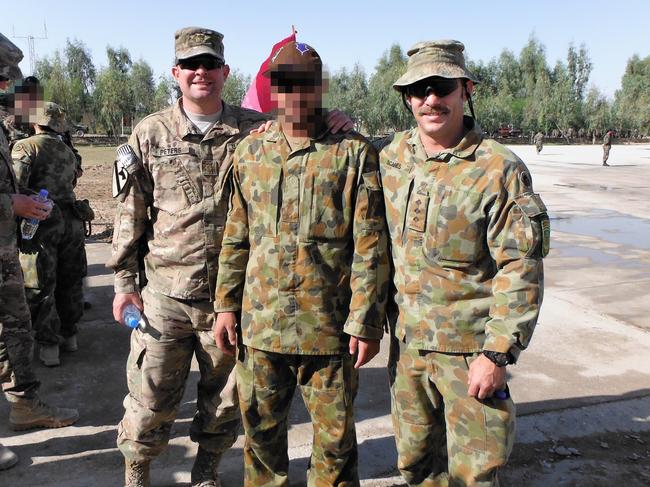
The Senate committee also noted the challenge faced by the DHA in responding to the additional humanitarian crises in Ukraine and recommended the department urgently increase its processing capacity and resourcing.
Former police and Australian Army officer turned lawyer, Glenn Kolomeitz, 54, said although he welcomed the findings and the recent budget announcement of 16,5000 more visa places, the entire process had been “a big failure by our government.”
“There’s still a whole lot of people, originally approved for (since expired) 449 visas stuck in Afghanistan who now have nothing,” he said.
“The government decided they were important enough to come to Australia back then, but not now.
“That’s a disgrace, and we have a whole lot of people in that situation.”
The Redcliffe native said while some of those visas were extended in November following the interim inquiry report, he claimed some were not.
Mr Kolomeitz and other volunteers had already helped evacuate more than 3000 eligible Afghans and were still trying to help about 1000 more, including family members, through Gap Veteran and Legal Services.
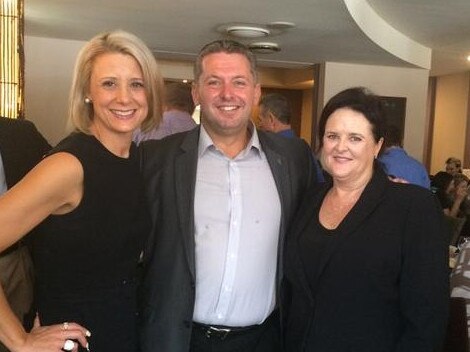
He said they were mostly Australian Defence Force (ADF) interpreters, Australian embassy guards or agricultural experts employed by the federal government.
“It’s terrible the way we have abandoned these families,’’ he said.
“We’ve been saying all along ‘we’re just helping the Australian government get their employees out, we’re helping the government meet their moral, and I believe, legal obligation to these people’.
“We shouldn’t be coming across all these obstacles, these bureaucratic departmental obstacles.”
But in February, DHA First Assistant Secretary, David Wilden told the inquiry Australia had continued to triage certain visa types and evacuate smaller numbers of people, where possible, according to the report.
He also said a large volume of visa applications had overwhelmed the visa caseload staff members.
“We are a bit behind where we wanted to be … We’ve done over 10,000, so there are 50,000 people who currently have their applications receipted,” he said.
There were more than 55,000 applications for different Humanitarian program visas from Afghans, representing 144,000 applicants, as of February, according to the DHA.
More than 4100 people were evacuated to Australia from Kabul between August 18-26, with a total of about 6,500 Afghans having arrived to date, the inquiry findings state.
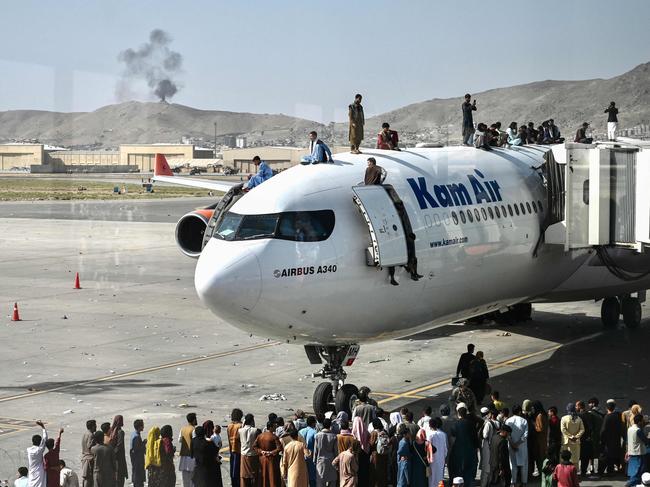
A Multicultural Australia representative told the inquiry of those, more than 1,400 evacuees arrived and were supported in Brisbane, with about 300 evacuees transferring from other state hotel quarantine arrangements between August and December.
Several families had stayed in Brisbane or moved to the Toowoomba, Cairns or Townsville areas.
A Department of Foreign Affairs and Trade (DFAT) spokesman told the Courier Mail in March an Australian Government chartered flight, carrying 182 at-risk Afghans, arrived in Darwin from Islamabad on February 15.
He said DFAT officials were continuing to work with any known Australians citizens, Permanent Residents and visa holders in Afghanistan.
Mr Scanes, 45, of Maryborough, and other advocates also questioned the Federal government’s promise to prioritise the evacuation of ADF interpreters, especially when some Afghans at low threat-risk or who did not work for Australia, such as athletes, had allegedly been evacuated quickly.
“The interpreters wore the Australian Army uniform and worked daily with our troops to achieve our mission to help secure our national interests,” he said.
“We’ve also got a number of interpreters that came here, but their wife and children have been left off those 449 visas, so they’re still in Afghanistan or Pakistan,” he said.
“It goes against what the government has said they’re going to do – it’s even on their web site – to prioritise women and children.”
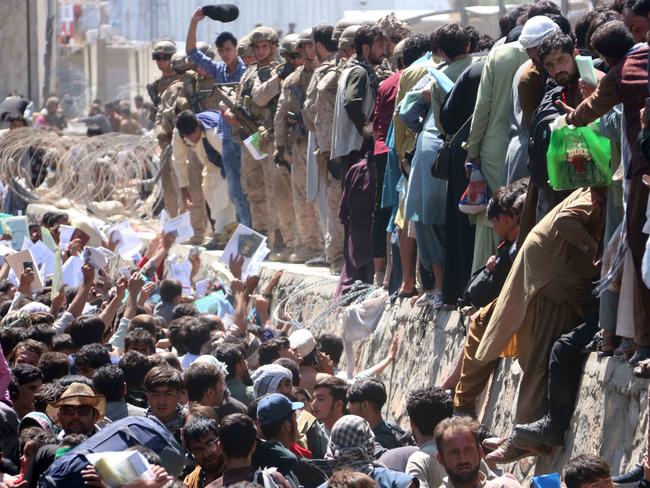
Mr Scanes, who has been petitioning the government on behalf of Iraqi and Afghan ADF interpreters for years through his not-for-profit group, Forsaken Fighters Australian, Inc, said it was painful knowing some of the families and meeting several roadblocks as he tried to help them reach safety.
‘It’s crazy the way the government has handled it and, in my mind, it’s nothing short of neglect,” he said.
“The situation for (women and children left in Afghanistan) is beyond desperate. They are struggling to get access to funds and they’re trying to move about all the time to try to hide.
“They’re trying to do this with other family members because they don’t have the primary male there, their husband, so the situation is extremely dangerous. There is no work in Afghanistan. People are starving and it is cold. We’ve left them there and forgotten about them.”
DIGGERS’ DISTRESS
The retired army Captain and Labor candidate for Hinkler said the interpreters’ lives being at risk because they worked with the ADF and then left behind has had a “profound” effect on the mental health of several veterans.
“Many are struggling. It’s having a really significant impact on our veterans,” he said.
“We trusted these people. We formed bonds with them and now our government has implicated us in a lie that we would help them.
“We get these guys mission focused and tout that we won’t let you down, that ‘We’re Australians mate, we don’t leave our mates behind’.
“We did a bloody good job over there and a hard job and the government has let us down and have made liars out of those veterans.”
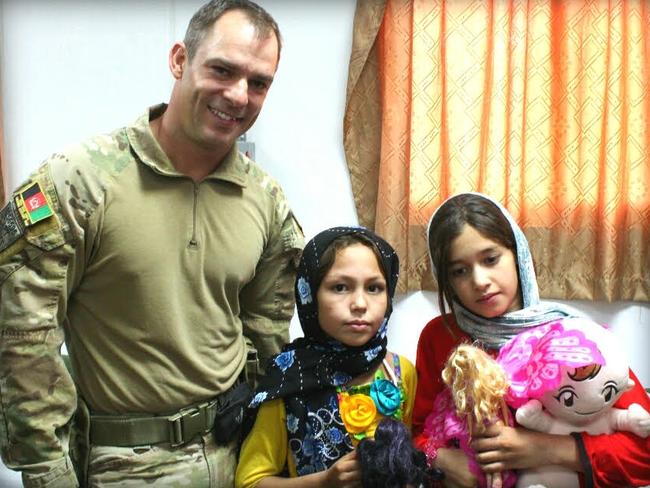
Mr Scanes said the situation was often compounded when veterans heard about other civilians at low to no risk of harm and who did not work for Australia already having been evacuated.
“We don’t begrudge anybody the government assists to get out of Afghanistan, but the government has always said those who assisted our troops were our highest priority, but they do not have seemed to be the highest priority in getting out,” he said.
“These interpreters, who wore the Australian uniform, have been left there. These guys have put their lives on the line for us.
“They wore the Australian combat uniform, they were dressed like Australian soldiers, and wore the Australian flag on their shoulder. We don’t just give anyone out our uniform to anyone.”
“(The government) has abandoned them and implicated our veterans in that lie.”
UKRAINE CRISIS
The Senate inquiry findings also noted the reports of reprisal allegedly continuing to occur against opponents of the Taliban, including “summary killings and enforced disappearances,” despite the Taliban’s alleged offer of amnesty for anyone who worked with allied forces.
In addition, the report made clear visas for people fleeing Ukraine should not “have the effect of displacing Afghans and other eligible cohorts of applicants”.
“The committee agrees that applications from Ukraine need to be treated with urgent priority; however, this should not come at the cost of slowing the processing of applications from the Afghan intake,” the report states.
Russia invaded Ukraine February 24, triggering Europe’s largest refugee crisis since World War II.
In March, Prime Minister Scott Morrison said Australia was receiving 100 visa applications a day from fleeing Ukrainians.
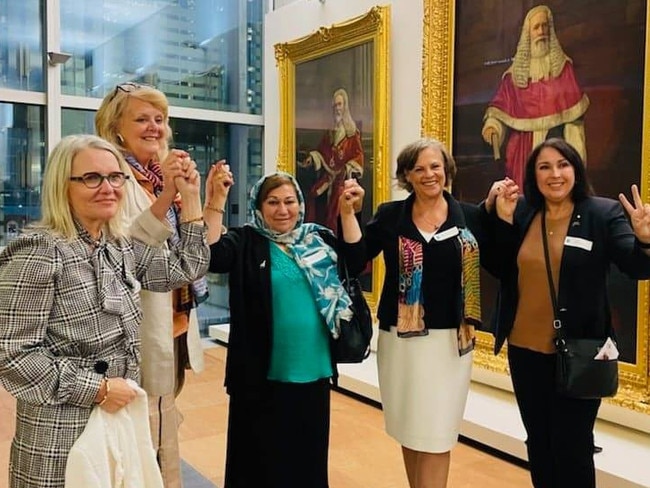
Humanitarian Kay Danes, 54, of Alexandra Hills, who has also been assisting with evacuations, said Ukraine was a completely different situation.
“Afghanistan is an unresolved humanitarian crisis that we agreed to be involved in. These are innocent people fleeing for their lives, we’re moving people around safe houses, it’s so diabolical,’’ she said.
“That the government is saying we haven’t forgotten them, but we’re helping Ukraine … These 1000 people we’re trying to get out. They’ve been shot at, they’ve been raped, they’ve been beaten, they’ve had family members who have been killed specifically because they’ve helped Australia.”
“Ukraine citizens are not being targeted because they helped Australia. It’s a different dynamic. … We need to get this right we need to fulfil the promises that we made to those who helped us.
As of February 2, DFAT were aware of 35 Australian citizens, 26 permanent residents and 148 foreign citizens who are immediate family members of Australians or permanent residents still in Afghanistan, according to the report.


